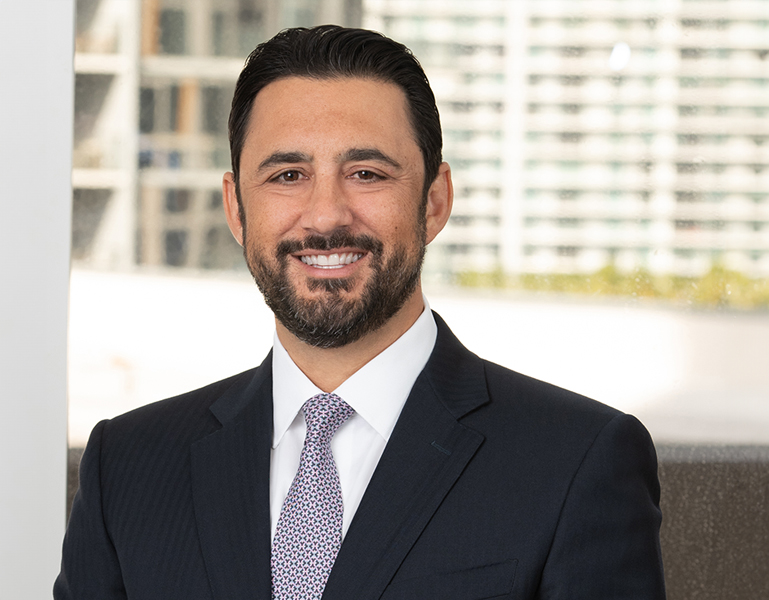DOJ Issues New FCPA Enforcement Guidelines
|
On June 9, 2025, the U.S. Department of Justice (DOJ) released a memorandum establishing long-awaited guidance for the investigation and enforcement of the Foreign Corrupt Practices Act (FCPA).[1] The guidance was a direct result of President Trump’s February 10 Executive Order, signed on February 10, 2025, which directed the DOJ not to initiate new FCPA investigations or enforcement actions for 180 days, except where specifically authorized by senior DOJ officials.[2] The Order also required a detailed review of all ongoing FCPA matters and the issuance of updated enforcement guidelines. The President’s stated objectives were to prevent the FCPA from being “stretched beyond proper bounds,” to avoid enforcement that could harm U.S. economic competitiveness, and to ensure that FCPA actions do not undermine U.S. national security or foreign policy interests.[3] The new guidelines, styled as a memorandum from the Deputy Attorney General to the attorney currently in charge of the DOJ Criminal Division (the “Memorandum”), signal a significant recalibration of FCPA enforcement priorities, with a focus on serious misconduct that can be attributed to specific individuals, national security threats, and conduct linked to transnational criminal organizations, while also seeking to limit undue burdens on U.S. companies operating abroad. Perhaps surprisingly, considering the doomsday scenarios that some anticorruption advocates had predicted, the new guidance signals a commitment to further FCPA enforcement, albeit with a narrower focus. Key Takeaways:
Implications for Companies and Compliance Programs In the months since the President’s February order, defense lawyers had been sending out warnings to companies not to let up on their anticorruption compliance efforts, if for no other reason than the statute of limitations is five years, while the President’s term is a year shorter. With the issuance of the new DOJ guidance, companies have little reason to loosen their compliance efforts, as DOJ policy continues to reward prevention efforts when it comes time to make prosecutive decisions.[12] U.S. companies operating abroad, as well as foreign issuers and foreign companies subject to the U.S.’s jurisdiction, should continue to maintain robust anticorruption compliance programs, particularly in high-risk sectors and jurisdictions and, as mentioned above, such compliance efforts need to include risks posed by TCOs and cartels, including sanctions risk and material support risk. Relatedly, companies conducting internal investigations must take care to document any business disruption or other collateral consequence that would take place in the case of a prosecution. This includes disruption during an investigation, such as overly broad document requests or other burdensome administrative steps. And at an investigation’s conclusion, the difficult decision of whether to self-report findings of misconduct will be informed by the clear openness of the Criminal Division to decline prosecution with appropriate cooperation and remediation. |
[1] Memorandum from the Deputy Attorney General to the Head of the Criminal Division, Guidelines for Investigations and Enforcement of the Foreign Corrupt Practices Act (FCPA) (June 9, 2025), https://www.justice.gov/dag/media/1403031/dl.
[2] Executive Order 14209, Pausing Foreign Corrupt Practices Act Enforcement To Further American Economic and National Security (Feb. 10, 2025), https://www.whitehouse.gov/presidential-actions/2025/02/pausing-foreign-corrupt-practices-act-enforcement-to-further-american-economic-and-national-security/.
[3] https://www.whitehouse.gov/presidential-actions/2025/02/pausing-foreign-corrupt-practices-act-enforcement-to-further-american-economic-and-national-security/.
[4] Executive Order 14157 Designating Cartels and Other Organizations as Foreign Terrorist Organizations and Specially Designated Global Terrorists (Jan. 20, 2025), https://www.whitehouse.gov/presidential-actions/2025/01/designating-cartels-and-other-organizations-as-foreign-terrorist-organizations-and-specially-designated-global-terrorists/.
[5] Memorandum from the Attorney General to All Department Employees, Total Elimination of Cartels and Transnational Criminal Organizations (Feb. 5, 2025), https://www.justice.gov/ag/media/1388546/dl.
[6] Executive Order 14157 Designating Cartels and Other Organizations as Foreign Terrorist Organizations and Specially Designated Global Terrorists (Jan. 20, 2025), https://www.whitehouse.gov/presidential-actions/2025/01/designating-cartels-and-other-organizations-as-foreign-terrorist-organizations-and-specially-designated-global-terrorists/.
[7] Department of State Designation of International Cartels (Feb. 20, 2025), https://www.state.gov/designation-of-international-cartels/.
[8]See Daniel R. Alonso, Global Corruption Enforcement Becomes Focus of U.S. Foreign Policy (May 20, 2015), https://www.cfo.com/news/global-corruption-enforcement-becomes-focus-of-us-foreign-policy/663940/; The White House, United States Strategy on Countering Corruption (Dec. 2021), https://bidenwhitehouse.archives.gov/wp-content/uploads/2021/12/United-States-Strategy-on-Countering-Corruption.pdf.
[9] Order Granting Motion to Dismiss, United States v. Coburn et al., 2:19-cr-00120, ECF No. 1036 (D.N.J. Apr. 3, 2025).
[10] Head of DOJ Criminal Division Matthew R. Galeotti Delivers Remarks at American Conference Institute Conference (June 10, 2025), https://www.justice.gov/opa/pr/head-justice-departments-criminal-division-matthew-r-galeotti-delivers-remarks-american.
[11] This position is also outlined by the Criminal Division’s Corporate Enforcement and Voluntary Self-Disclosure Policy (CEP), revised in May of this year. To receive a declination, there must be “no aggravating circumstances related to the nature and seriousness of the offense, egregiousness or pervasiveness of the misconduct within the company, severity of harm caused by the misconduct, or criminal adjudication or resolution within the last five years based on similar misconduct by the entity engaged in the current misconduct.” https://www.justice.gov/criminal/media/1400031/dl?inline.
[12] DOJ Manual Principles of Federal Prosecution of Business Organizations, https://www.justice.gov/jm/jm-9-28000-principles-federal-prosecution-business-organizations.
Vedder Thinking | Articles DOJ Issues New FCPA Enforcement Guidelines
Article
June 11, 2025
|
On June 9, 2025, the U.S. Department of Justice (DOJ) released a memorandum establishing long-awaited guidance for the investigation and enforcement of the Foreign Corrupt Practices Act (FCPA).[1] The guidance was a direct result of President Trump’s February 10 Executive Order, signed on February 10, 2025, which directed the DOJ not to initiate new FCPA investigations or enforcement actions for 180 days, except where specifically authorized by senior DOJ officials.[2] The Order also required a detailed review of all ongoing FCPA matters and the issuance of updated enforcement guidelines. The President’s stated objectives were to prevent the FCPA from being “stretched beyond proper bounds,” to avoid enforcement that could harm U.S. economic competitiveness, and to ensure that FCPA actions do not undermine U.S. national security or foreign policy interests.[3] The new guidelines, styled as a memorandum from the Deputy Attorney General to the attorney currently in charge of the DOJ Criminal Division (the “Memorandum”), signal a significant recalibration of FCPA enforcement priorities, with a focus on serious misconduct that can be attributed to specific individuals, national security threats, and conduct linked to transnational criminal organizations, while also seeking to limit undue burdens on U.S. companies operating abroad. Perhaps surprisingly, considering the doomsday scenarios that some anticorruption advocates had predicted, the new guidance signals a commitment to further FCPA enforcement, albeit with a narrower focus. Key Takeaways:
Implications for Companies and Compliance Programs In the months since the President’s February order, defense lawyers had been sending out warnings to companies not to let up on their anticorruption compliance efforts, if for no other reason than the statute of limitations is five years, while the President’s term is a year shorter. With the issuance of the new DOJ guidance, companies have little reason to loosen their compliance efforts, as DOJ policy continues to reward prevention efforts when it comes time to make prosecutive decisions.[12] U.S. companies operating abroad, as well as foreign issuers and foreign companies subject to the U.S.’s jurisdiction, should continue to maintain robust anticorruption compliance programs, particularly in high-risk sectors and jurisdictions and, as mentioned above, such compliance efforts need to include risks posed by TCOs and cartels, including sanctions risk and material support risk. Relatedly, companies conducting internal investigations must take care to document any business disruption or other collateral consequence that would take place in the case of a prosecution. This includes disruption during an investigation, such as overly broad document requests or other burdensome administrative steps. And at an investigation’s conclusion, the difficult decision of whether to self-report findings of misconduct will be informed by the clear openness of the Criminal Division to decline prosecution with appropriate cooperation and remediation. |
[1] Memorandum from the Deputy Attorney General to the Head of the Criminal Division, Guidelines for Investigations and Enforcement of the Foreign Corrupt Practices Act (FCPA) (June 9, 2025), https://www.justice.gov/dag/media/1403031/dl.
[2] Executive Order 14209, Pausing Foreign Corrupt Practices Act Enforcement To Further American Economic and National Security (Feb. 10, 2025), https://www.whitehouse.gov/presidential-actions/2025/02/pausing-foreign-corrupt-practices-act-enforcement-to-further-american-economic-and-national-security/.
[3] https://www.whitehouse.gov/presidential-actions/2025/02/pausing-foreign-corrupt-practices-act-enforcement-to-further-american-economic-and-national-security/.
[4] Executive Order 14157 Designating Cartels and Other Organizations as Foreign Terrorist Organizations and Specially Designated Global Terrorists (Jan. 20, 2025), https://www.whitehouse.gov/presidential-actions/2025/01/designating-cartels-and-other-organizations-as-foreign-terrorist-organizations-and-specially-designated-global-terrorists/.
[5] Memorandum from the Attorney General to All Department Employees, Total Elimination of Cartels and Transnational Criminal Organizations (Feb. 5, 2025), https://www.justice.gov/ag/media/1388546/dl.
[6] Executive Order 14157 Designating Cartels and Other Organizations as Foreign Terrorist Organizations and Specially Designated Global Terrorists (Jan. 20, 2025), https://www.whitehouse.gov/presidential-actions/2025/01/designating-cartels-and-other-organizations-as-foreign-terrorist-organizations-and-specially-designated-global-terrorists/.
[7] Department of State Designation of International Cartels (Feb. 20, 2025), https://www.state.gov/designation-of-international-cartels/.
[8]See Daniel R. Alonso, Global Corruption Enforcement Becomes Focus of U.S. Foreign Policy (May 20, 2015), https://www.cfo.com/news/global-corruption-enforcement-becomes-focus-of-us-foreign-policy/663940/; The White House, United States Strategy on Countering Corruption (Dec. 2021), https://bidenwhitehouse.archives.gov/wp-content/uploads/2021/12/United-States-Strategy-on-Countering-Corruption.pdf.
[9] Order Granting Motion to Dismiss, United States v. Coburn et al., 2:19-cr-00120, ECF No. 1036 (D.N.J. Apr. 3, 2025).
[10] Head of DOJ Criminal Division Matthew R. Galeotti Delivers Remarks at American Conference Institute Conference (June 10, 2025), https://www.justice.gov/opa/pr/head-justice-departments-criminal-division-matthew-r-galeotti-delivers-remarks-american.
[11] This position is also outlined by the Criminal Division’s Corporate Enforcement and Voluntary Self-Disclosure Policy (CEP), revised in May of this year. To receive a declination, there must be “no aggravating circumstances related to the nature and seriousness of the offense, egregiousness or pervasiveness of the misconduct within the company, severity of harm caused by the misconduct, or criminal adjudication or resolution within the last five years based on similar misconduct by the entity engaged in the current misconduct.” https://www.justice.gov/criminal/media/1400031/dl?inline.
[12] DOJ Manual Principles of Federal Prosecution of Business Organizations, https://www.justice.gov/jm/jm-9-28000-principles-federal-prosecution-business-organizations.


